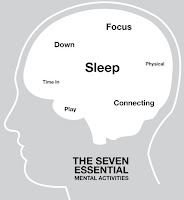Here are some practical principles I'll recommend to someone
who wants to develop his play.
1. Find a training
partner.
Plan your chess training together and encourage each other to
do your best.
2. Warm-up
before a game or a training session.
Good focus is needed here
and bring your mental skill in top shape.
3. Keep your pieces protected (a good technique to keep in mind).
Make sure your pieces are connected to not overlook something.
4. Spot the opponent's threat (after
opponent's last move).
Ask yourself the intention of the opponent's last move and what he will do next.
5. Perform anti-blunder
check (before making your move).
Check the opponent's attacking response especially on your half of the board.
Chess Quotes
Play the opening like a book, the middle game like a magician, and the endgame like a machine. – Spielmann
General Tips
Chess is a matter of delicate judgment, knowing when to punch and how to duck. – Fischer
Opening
The middlegame I repeat is chess itself; chess with all its possibilities, its attacks, defences, sacrifices, etc. – Znosko-Borovsky
Endgame
The theory of the endgame proper is concerned to a large extent with the conversion of an advantage of one pawn into a win. – Fine
Tactics and Strategy
The tactician knows what to do when there is something to do; whereas the strategian knows what to do when there is nothing to do. – Gerald Abrahams
Analysis
Chess mastery essentially consists of analyzing chess positions accurately.
– Botvinnik





